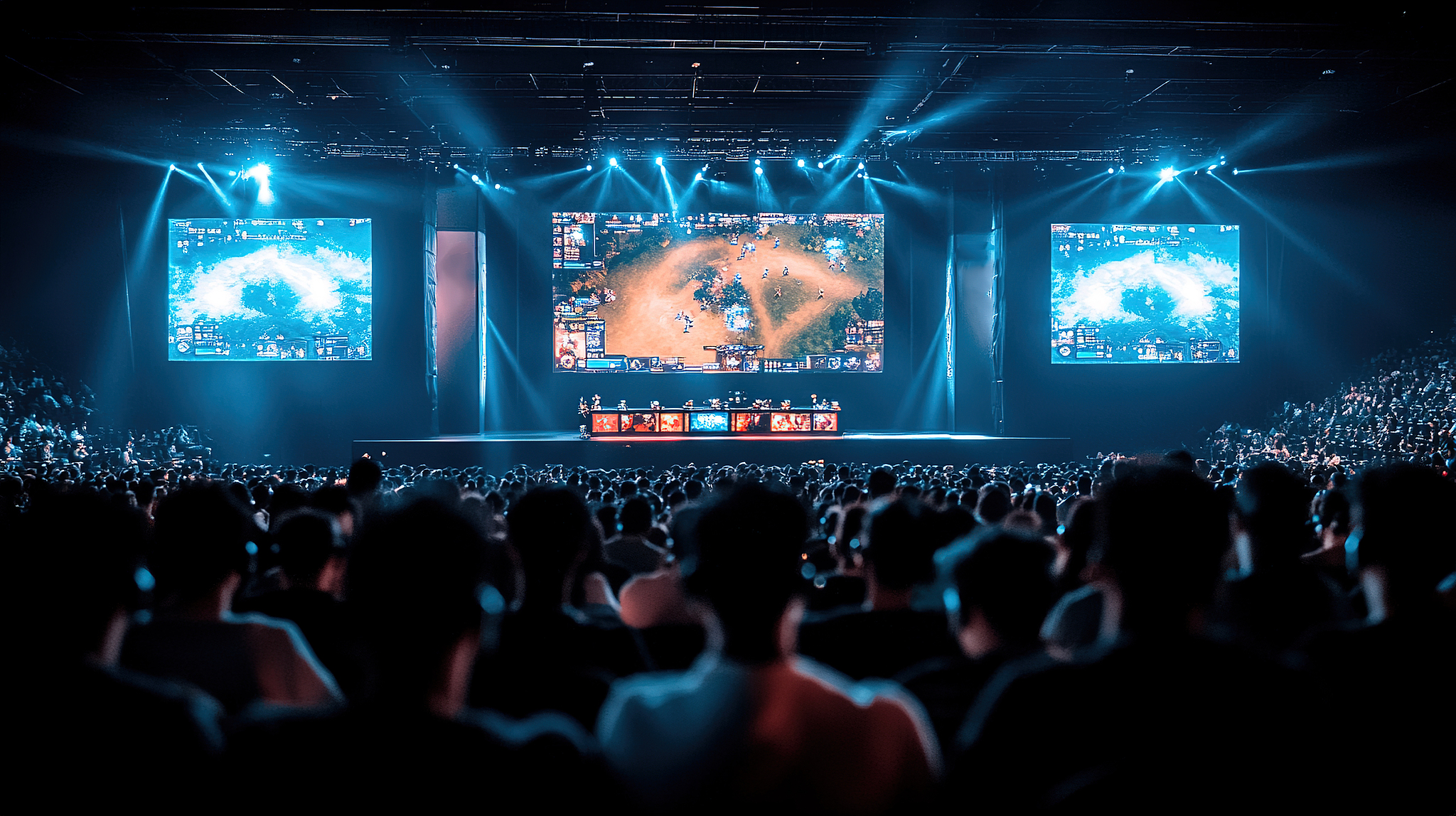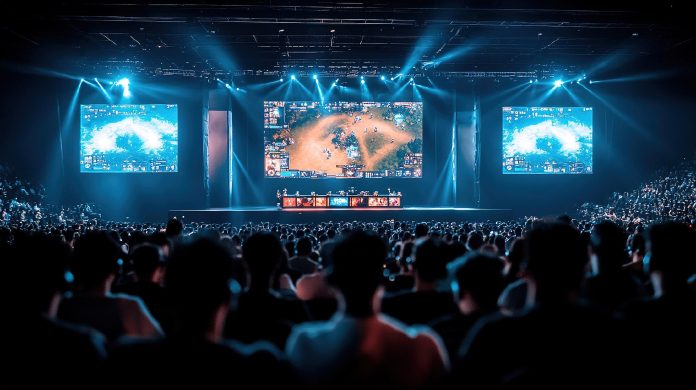
China’s growing role in the global gaming industry reflects a broader shift toward cultural exchange and mutual understanding. By actively listening to local communities and integrating culturally meaningful content into gameplay, Chinese developers are transforming games into platforms for global connection. These are not accidental gestures, but purposeful efforts to bridge cultural divides – not through imposed narratives, but through shared, playable experiences that resonate across languages and borders.
China‘s rising presence in global esports
In late 2024, the sixth iteration (M6) of the Mobile Legends: Bang Bang (MLBB) World Championship in Kuala Lumpur brought together 16 teams in a new Swiss-format competition with a $1 million prize pool. From internet cafes in Jakarta to dorm rooms in São Paulo, millions followed the action. They were connected by one mobile game developed by the Chinese company Moonton Games and embraced across Southeast Asia, Latin America and beyond.
As the global esports industry continues to expand, new markets are emerging across these areas, where competitive gaming is becoming a vibrant part of everyday culture.
According to ActivePlayer.io, a game statistics website, MLBB currently has approximately 37.6 million monthly active players worldwide, with a 2.6 percent month-over-month growth, adding nearly 960,000 new users in the most recent period.
Data from Statista indicates that the game continues to enjoy strong traction in the region, with 7.6 million downloads recorded in December 2024 alone, and over 641 million lifetime downloads globally.
MLBB’s competitive scene further reinforces its cultural significance. Esports Charts, an esports analytical service, estimates that the 2024 M6 World Championship recorded a peak online audience of over 4.1 million viewers, with a total of nearly 86 million watch hours for the season. Meanwhile, regional professional leagues such as the Mobile Legends: Professional League (MPL) in the Philippines and Indonesia consistently draw large audiences, reflecting a passionate and engaged fanbase across Southeast Asia.

Inclusive gameplay, icons, and community
One of MLBB’s core strengths lies in its technical inclusivity. Developed by Chinese studio Moonton Games, MLBB was designed from the outset to run smoothly on a wide range of smartphones, including low- to mid-tier devices commonly used in Southeast Asia, Latin America and parts of Africa. This hardware adaptability has significantly lowered the barrier to entry, ensuring millions of players – regardless of their economic background – can access and enjoy competitive mobile esports.
Yet accessibility doesn’t come at the cost of depth. MLBB offers strategic complexity and role-based gameplay that balances teamwork with individual flair. This design not only boosts replayability but also fosters emotional connection, particularly among younger players looking to express themselves and grow through competition.
One standout is Benedict “Bennyqt” Gonzales, the gold laner whose precise mechanics and calm leadership helped Echo Esports secure the M4 World Championship and multiple MPL Philippines titles. His clutch “backdoor” plays (a daring solo push to the enemy base, bypassing the main fight) became legendary, elevating him from national talent to global icon.
After becoming a father, he named his daughter Wanwan, after his signature hero – symbolizing how personal meaning and professional identity often intertwine in MLBB’s community. His journey reflects how the game not only rewards skill, but also celebrates stories, values and emotional connection.
That same inspiring thread runs through other regions. Take Brazil’s Victor “Lunna” Monteiro, a support player for Red Canids, as an example. Known for his skillful use of the tank hero Akai, Lunna helped secure the first-ever MPL Brazil title and qualified for the M3 World Championship, placing himself and his team on the global MLBB map.
During the M3 World Championship interview segment, Lunna revealed that his attachment to the character began off the battlefield. His young daughter was facing serious health issues, and during her recovery, the one thing that consistently brought her comfort and joy was watching Kung Fu Panda. The cheerful, clumsy-yet-heroic panda gave her courage and unknowingly, it gave Lunna something to hold on to as well.
Together, these player stories reveal that MLBB’s esports arena is not just a place to compete, but a space where diverse backgrounds, motivations and identities converge through shared goals and emotions.

Building global ties in digital spaces
China’s role in facilitating these global connections through MLBB is no accident. Behind its success lies not just technological execution, but a deliberate and open-minded strategy rooted in respect, patience and adaptability. This perspective reflects a deeper understanding of market diversity. In Indonesia, for example, Moonton partnered with renowned comic artist Is Yuniarto to bring the legendary character Gatotkaca – a hero from the Garudayana comic series and Javanese mythology – into the game. This was not merely cosmetic localization, but an act of cultural integration, embedding local myths and symbols into playable heroes, and giving players characters they could immediately recognize and take pride in.
Beyond Southeast Asia, Latin America – particularly Brazil – has emerged as a promising frontier for mobile esports. The establishment of Brazil’s first professional league in 2021 marked a pivotal step, offering a professional framework for local talent. Recognizing this momentum, China’s gaming industry has increasingly turned its attention to Latin America, viewing it as a key partner in the global digital economy and a focal point for future cultural and technological collaboration.
Such efforts are not incidental; they are deliberate strategies to reduce the cultural “information gap” between developer and player. By embedding local symbols into gameplay through authentic collaboration, Chinese developers demonstrate how games can function as tools of cultural diplomacy – not through top-down messaging, but by offering shared symbols that carry meaning across borders.
As esports gains global recognition, from the Esports World Cup to future Olympic Esports Series, China’s growing presence in this arena reflects a new mode of international engagement: cultural exchange unfolds in digital spaces where players from different countries compete, connect and create meaning together. China’s gaming industry is helping shape a more connected and collaborative global esports ecosystem.
